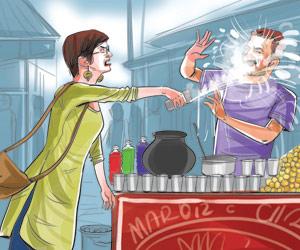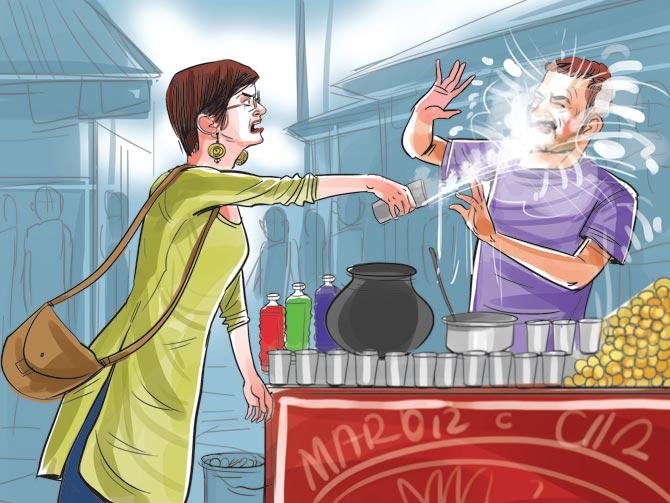The Harvey Weinstein case has opened up a Pandora's box of sexual harassment cases


Illustration/Uday Mohite
ADVERTISEMENT
 The Harvey Weinstein case has opened up a Pandora's box of sexual harassment cases. Many women are recalling cases of harassment that happened decades ago, because then we would probably have been dismissed or punished for it. The situation is not very different now, yet women are risking making these revelations, so that their oppressors don't get away with it. There are naming and shaming lists going around. Of course, sexual harassment must be stopped, but it is worth reflecting on the most effective way to do so. Naming and shaming the oppressors may or may not achieve its goal: we must be prepared for the consequences, which may include revenge, physical attacks, acid attacks, divorce, job transfers, or worse. Obviously, it is very difficult to prove such private experiences, and women's groups are divided on whether such lists are justified. Yet, much of the discussion on social media in India is questioning the women accusers, rather than the men accused.
The Harvey Weinstein case has opened up a Pandora's box of sexual harassment cases. Many women are recalling cases of harassment that happened decades ago, because then we would probably have been dismissed or punished for it. The situation is not very different now, yet women are risking making these revelations, so that their oppressors don't get away with it. There are naming and shaming lists going around. Of course, sexual harassment must be stopped, but it is worth reflecting on the most effective way to do so. Naming and shaming the oppressors may or may not achieve its goal: we must be prepared for the consequences, which may include revenge, physical attacks, acid attacks, divorce, job transfers, or worse. Obviously, it is very difficult to prove such private experiences, and women's groups are divided on whether such lists are justified. Yet, much of the discussion on social media in India is questioning the women accusers, rather than the men accused.
Like most other women, I've had a number of experiences of sexual harassment over the years, that have affected my childhood, marriage, job and more. As a child, I was groped by a relative at a large family reunion during a religious festival. Unfortunately, our parents' generation was not equipped to explain good touch, bad touch to children. My marriage, over 25 years ago, was extremely violent, so I ended it very quickly. I left a top national daily as Assistant Editor, after 15 years, because of an incident of sexual harassment.
Also infuriating was a public incident when I was a teenager, going by train to St Xavier's College. A man groped me on the crowded Bandra station bridge. Outraged, I slapped him. He retaliated by thrashing me so hard, that I fell headlong on the landing, my books all scattered. Strangely, no one helped me that day. I struggled to my feet alone, furious that I had been publicly humiliated, instead of him.
Another time, I was at a bus stop in Delhi. A water seller - they sell glasses of water in Delhi - kept staring at me, as if raping me with his eyes. I calmly bought a glass of water and hurled the water on his face. Later, my friends were very angry with me and told me never to try such stunts in Delhi, because I would be attacked, and no one would come to my aid. Fortunately, today, parents and even schools teach children about good touch and bad touch. We will see what happens when the molester turns out to be our family member. Mira Nair had dared to call out the family molester early on in Monsoon Wedding (2001) and Imtiaz Ali did likewise in Highway (2014).
Groping, of course, is the daily lot of commuters in Mumbai and elsewhere. Usually, I thrash gropers and loudly ask, "Ghar mein maa-behen nahin hai kya?" Usually, they slink away, or protest feebly, or get down at the next station. It will be a great day when the average woman commuter immediately elbows a groper so severely in the groin for "accidentally" leaning against her, that he will think twice before trying the next "accident". For women, it's aata-majhi-satakli time.
Meenakshi Shedde is South Asia Consultant to the Berlin Film Festival, award-winning critic, curator to festivals worldwide and journalist. Reach her at meenakshishedde@gmail.com.
 Subscribe today by clicking the link and stay updated with the latest news!" Click here!
Subscribe today by clicking the link and stay updated with the latest news!" Click here!






